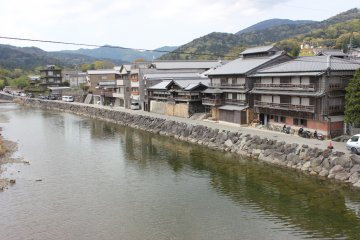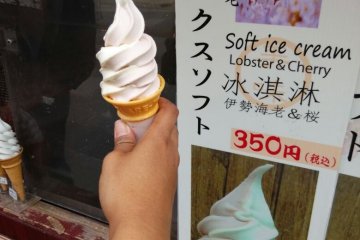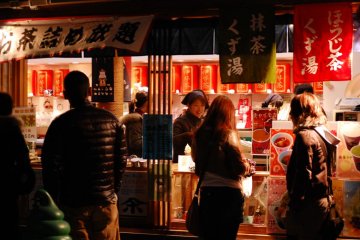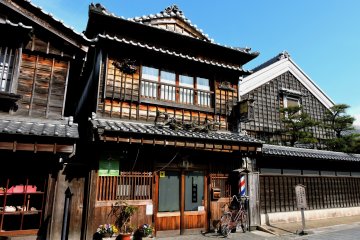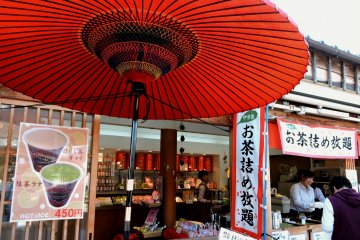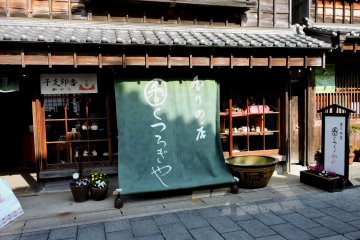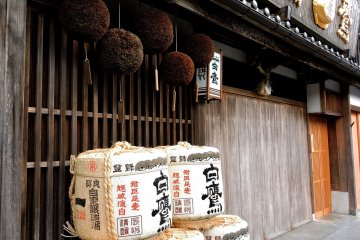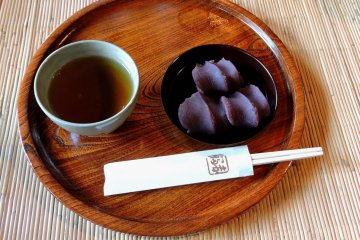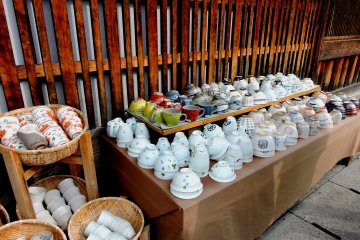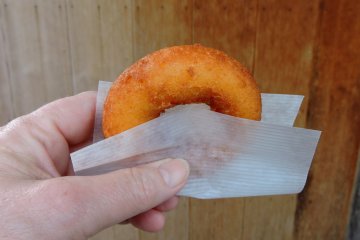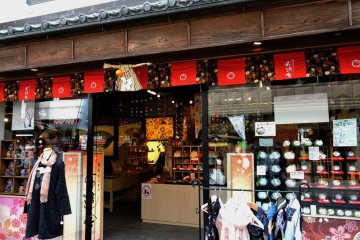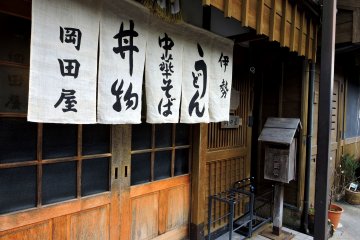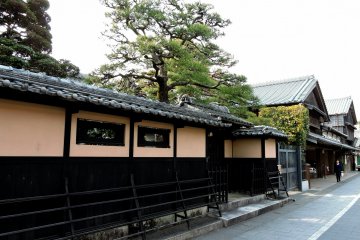Oharai-machi is the town that grew up around the approach to Ise Naiku Shrine. Since Ise Shrine is at the top of Shinto Hierarchy, there was never any shortage of visitors and the town prospered. There are businesses in this town that are centuries old! At over 300 years old, Akafuku is one of the oldest businesses. They sell traditional Japanese sweets. To express gratitude to the shrine and to restore some of Oharai-machi’s former glory Akafuku constructed the area of Okage Yokocho in 1993, using specially selected wood, tiles and other traditional materials.
Elements of style
The new area blends perfectly into the old town, and it is like stepping backward in time to the Edo or early Meiji periods. Traditional architectural elements like gray roof tiles, wooden lattice, sliding doors and thick fire-proof windows harmonize happily with door curtains and kanji sign boards. Don’t forget to look up and enjoy the roof tiles. Monkeys, jolly gods of luck, chopsticks, fish and gourds add fun and variety to the roofs of the buildings.

Open for business
The nostalgic buildings are occupied by souvenir and craft shops, restaurants and tea shops. Stores selling handcrafts like Matsusaka cotton and braided string from Iga, pearl jewelry and pottery line the street. There are stores selling tea, sake, Japanese crackers.
It made me smile to see a bank, a post office, and even a Family Mart convenience store. They were almost unrecognizable disguised in their quaint old-style wooden buildings.

Regional specialties
You can find all the regional specialties here, including Ise udon (thick noodles in a rich, dark sauce instead of the usual soup), and kebabs of Matsusaka beef (like Kobe, Matsusaka is famous for its beef). Naturally there is lots of delicious seafood available.
You might want to try the special local kind of sushi called ‘tekone-zushi’ which features slices of tuna that have been marinated in soy sauce mixed in with vinegared rice.
Akafuku Traditional Japanese Sweets
Make sure you go to Akafuku’s sweet shop and try freshly made akafuku sweets. They are made of mochi covered with red bean paste, and the name means ‘red happiness’. The store is delightfully old-fashioned. There is an amazing old wood-burning stove. Customers can sit inside on tatami mats, or on the back veranda which overlooks a small Japanese garden with a river in the background.

A more modern sweet that I also recommend is the tofu donuts. My friends told me they have become popular recently, especially with women. Sure enough, the store was full of women! We joined the crowd buying donuts, and they were delicious.

Mochi Museum
Still on the subject of sweets, there is a mochi museum in Okage Yokocho that is worth visiting. As a big fan of Japanese sweets, I found it fascinating. There are realistic models of many different kinds of traditional sweets. I have a lot more sweets to try! There was also a display of old Japanese coins, which was impressive for its variety and the elegant designs of the coins. I was told there were a few other interesting museums, but I didn’t have time to visit them. The Mochi Museum is open until March 2017 so don't miss it!

Time travel
I loved the nostalgic atmosphere of Okage Yokocho. I loved the fact that the area was bustling with tourists, and the businesses appeared to be thriving. Okage Yokocho is no theme park or staged museum street. You can feel the life and energy there, even though it evokes a time long past. Maybe this is as close as you can get to time travel!

Also check out these articles for more on Okage Yokocho:




